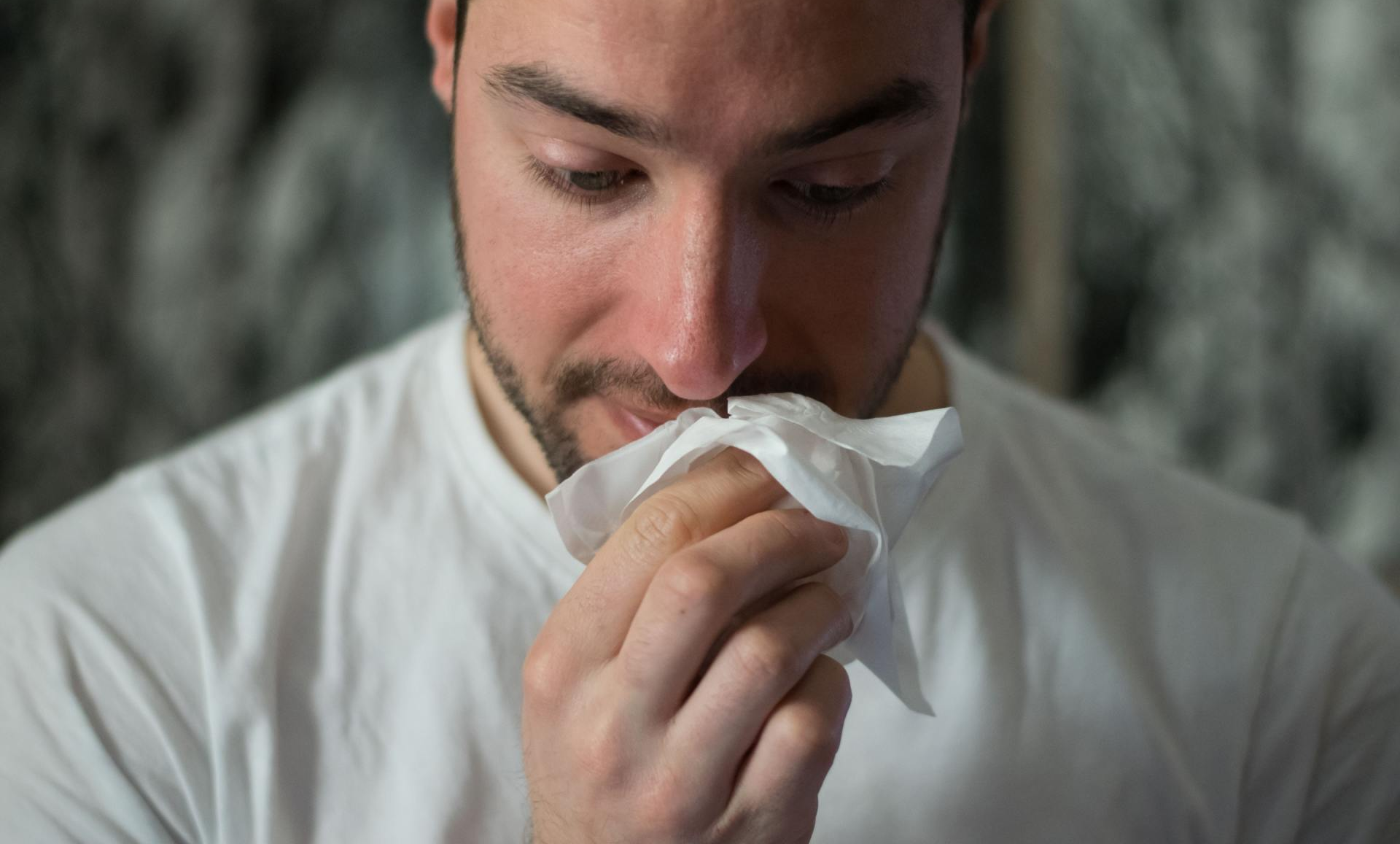A Message From Your Doctor
The Union Dental • April 1, 2020
As health officials seek to contain the coronavirus outbreak, unprecedented safety measures have been issued for our protection. We want to reassure you that Union Dental is also taking extraordinary measures to protect your health and wellbeing.
Your Protection Against Exposure
As a healthcare provider, we are held to higher sanitary standards by law. We follow all OSHA requirements including fully sanitizing exam rooms between patient visits, sterilizing dental implements after patient visits and wearing protective gear such as medical gloves and masks.
To further protect you and the community, we’ve prepared this message to alert others to the connection between one’s oral health, immune system and bodily diseases—including viruses¹—and provide additional preventive tips.
Link Between Oral Heath, Illness and the Immune System
Your mouth is home to billions of bacteria; some are friendly bacteria while others are harmful. When your oral hygiene regimen is properly done and your immune system is intact, the harmful bacteria is kept in check. However, when oral hygiene habits are poor—including insufficient brushing or flossing and too few professional cleanings—the harmful bacteria can cause tooth decay and gum disease.²
This tooth decay and gum disease create inflammation which, in turn, damages your gums’ blood vessels and allows bacteria into the bloodstream.³ By its nature, this bacteria not only evades the immune system, it manipulates it so the harmful bacteria can continue to survive.⁴ As your immune system weakens, your susceptibility to diseases like the coronavirus and other infectious illnesses increases.
This harmful bacteria can also trigger other health issues such as cardiovascular disease, heart disease, pneumonia and, for expectant mothers, premature birth and underweight babies.² And, as health officials continue to warn us, the coronavirus is more likely to be contracted by those with underlying medical conditions.⁵
Why We Won’t Close Our Doors
Despite our own risk of exposure, we refuse to close our doors amid this healthcare crisis. As a frontline healthcare provider, we firmly believe it’s our responsibility to detect and eliminate those oral issues which threaten your immune system and your ability to ward off infectious diseases including the coronavirus and the flu. It’s our mission to do all we can to preserve and protect your help, in good times and bad.
Warning Signs of Oral Decay and Infection
If you are experiencing any of the following signs of bacterial decay or infection, we strongly recommend you come see our doctors at any of our locations to address the issue:
- Severe tooth pain
- Swollen face, cheeks or gums
- Sensitivity to hot or cold food or beverages
- Sensitivity when biting down
For patients who already have a compromised immune system, eradicating oral decay and infection is even more imperative.
Of course, if you have any signs of illness, stay isolated and seek medical attention as warranted by coronavirus health guidelines.
Preventive Oral Hygiene Tips
Here are some oral hygiene tips to reduce the risk of exposure to the coronavirus and other illness in your household:
- Use Your Own Toothbrush: The coronavirus is spread through touching a surface or object which contains the virus and then touching your nose or mouth (and possibly the eyes).⁴ Never share a toothbrush with anyone who may have been exposed to the coronavirus or is ill. As a side note, rinsing the toothbrush will not decontaminate it. To be safe, never share a toothbrush for any reason, even with loved ones.⁶
- Don’t store toothbrushes in closed containers: Bacterial growth can occur on toothbrushes when they are covered or stored in closed containers.⁶
- Don’t share toothpaste: Sharing toothpaste tubes can spread germs. If a member of your household has been exposed to the coronavirus or other communicable disease or is presently ill, give them their own toothpaste tube to use.⁷
- Eat Right: The right nutrition supports all your body’s vital functions including the immune system. Guidelines include eating fruits, whole grains, a variety of vegetables and proteins—such as seafood, lean meat and poultry, eggs, nuts, seeds—and more.⁸ Dietary guidelines can be found on the U.S. Department of Health & Human Services site at www.HHS.gov.
- Take Vitamin C: A recent medical study indicates vitamin C helps prevent the common cold and reduces its duration. Moreover, inadequate C increases one’s risk of contracting the flu and makes flu symptoms more severe. As studies continue in vitamin C’s direct effect on the coronavirus, taking this supplement should help support your immune system.⁹
Stay Calm
Despite the alarming headlines, the Centers for Disease Control and Prevention (CDC) reports that the risk of Americans being exposed to the coronavirus is low and that most cases are mild.¹⁰ On our last check, the CDC was reporting 3,487 cases of coronavirus in the U.S. amid a population of 329 million. That means just a fraction of one percent of all Americans have the virus right now and it’s likely symptoms are mild. Compare that to CDC estimates of at least 36 million U.S. cases of the flu over the 2019 – 2020 flu season (March 1, 2019 to March 7, 2020) with a minimum of 370,000 million flu hospitalizations.¹³
In the meantime, continue to follow CDC guidelines and if you are experiencing signs of oral decay or infection, do not ignore them. Come see us to get it rapidly addressed and eradicated as a health risk.
Best regards,
Staff at Union Dental
1 Colgate: “Eight Common Oral Infections”
2 Mayo Clinic: “Oral health: A window to your overall health”
3 Johnson & Johnson: “4 Fascinating Things Scientists Know About the Billions of Bacteria in Your Mouth”
4 Science Daily: Smile: “Gingivitis bacteria manipulate your immune system so they can thrive in your gums”
5 Harvard Health Publishing: “Coronavirus Resource Center”
6 Centers for Disease Control and Prevention: “Use & Handling of Toothbrushes”
7 University of Rochester Medical Center: “Toothbrush Tactics: Give Germs the Brush-Off”
8 U.S. Dept. of Health & Human Services: “Dietary Guidelines for Americans”
9 MedicineNet: “Can Vitamin C Prevent and Treat the Corona Virus?”
10 Centers for Disease Control and Prevention: “Coronavirus Disease 2019 (COVID-19)”
11 Centers for Disease Control and Prevention: “Coronavirus Disease 2019 (COVID-19) in the U.S.”
12 The United States Census Bureau: “U.S. and World Population Clock”
13 Centers for Disease Control and Prevention: “2019-2020 U.S. Flu Season: Preliminary Burden Estimates”

1 Department of Microbiology, North Carolina State University, Raleigh, NC 27695, USA 2 Department of Food, Bioprocessing and Nutrition Sciences, North Carolina State University, Raleigh, NC 27695, USA 3 Current address: Centers for Disease Control and Prevention, Enteric Diseases Laboratory Branch, 1600 Clifton Rd., Atlanta, GA 30329, USA. * Author to whom correspondence should be addressed. Academic Editor: Jens H. Kuhn Viruses 2017, 9(3), 58; https://doi.org/10.3390/v9030058 Received: 13 February 2017 / Revised: 15 March 2017 / Accepted: 17 March 2017 / Published: 21 March 2017 (This article belongs to the Section Animal Viruses)

The 2018 flu season has been one of the worst in 15 years. According to the Centers for Disease Control, in the final week of January 2018, 7.1% of all outpatient visits were for flu-like symptoms, an increase of .5% from the week before. This season has already led to the tragic deaths of 53 children from influenza, and it may only be half over. While it has already been established that oral health care is systemic health care and that a healthy mouth is positively linked with reduced rates of heart disease and other chronic illnesses, the specific links between harmful bacteria in the oral cavity and susceptibility to harmful systemic viruses are only recently being explored. According to a recent review from researchers at North Carolina State University in collaboration with the CDC, illness-causing viruses and bacteria interact in two ways: Direct interactions, in which a virus exploits a bacterial component to penetrate a host cell Indirect interactions, in which a viral infection causes increased bacterial pathogenesis According to this review, many common oral bacteria associated with gum disease also have an immune-suppression effect that increases susceptibility to cold and flu viruses like influenza and rhinovirus. Two of the most virulent bacteria are: Porphyromonas gingivalis. P. gingivalis is found in the oral cavity. While it is generally present in low numbers, it has many ways of suppressing the immune system to evade immune responses. Specifically, it delays neutrophil recruitment, impairs immune signaling, modulates the effectiveness of leukocytes, and compromises the integrity of epithelial cell layers. All of these functions cause a microbial shift in the oral cavity, not only increasing the virulence of other harmful oral bacteria but leads to an environment necessary for the survival of other harmful species like Streptococcus gordonii. P. gingivalis. Therefore, is not only a cause of periodontal disease, but a cause of other immune system failures, and has been linked to chronic immune conditions rheumatoid arthritis, and viruses like HIV and herpes. Streptococcus pneumoniae. S. pneumoniae is a bacteria generally found in the respiratory tract, sinuses, and nasal cavity. It becomes pathogenic when the host immune system is suppressed and colonizes the air sacs of the lungs. S. pneumoniae has a powerful ability to repair its own DNA when damaged by the host immune response, continuing to transfer itself to non-infected cells. While most frequently associated with pneumonia and meningitis, it is also positively associated with periodontitis and oral plaque and increases the risk of death when comorbid with the influenza virus. Repeated studies have demonstrated the benefits of oral interventions to improve the respiratory health of hospitalized patients, including reducing the need for systemic IV antibiotics, and even shortening the duration of mechanical ventilation in hospitalized ICU patients. In short, a review of the literature suggests that heightened oral care may be an under-utilized avenue for prevention of disease and mitigation of lethality during cold and flu season. In addition to conventional flu prevention methods such as handwashing, avoiding exposure, and getting a flu shot, additional preventive methods specifically targeting oral health may be beneficial. Here are some additional ways patients can take care of themselves during the flu season: Get regular dental checkups and dental cleanings Brush and clean in between teeth regularly Wash your hands before flossing to prevent bacteria from entering the mouth Replace toothbrushes every 3-4 months, and discard a toothbrush if it was used while suffering from the cold or flu Thoroughly rinse toothbrushes after use and allow them to air-dry in an upright position between uses Never share toothbrushes Oral hygiene is important year-round but is especially important during flu season. It should be a part of a comprehensive approach to the preservation of health and avoidance of illness.
